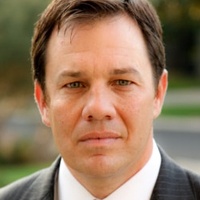Canyon Lake White Collar Crime Lawyer, Texas
Sponsored Law Firm
-
 x
x

Click For More Info:
-
Stephanie Alvarado Attorney at Law
100 N Central Expy Suite 805 Richardson, TX 75080» view mapCriminal Defense Law Fighting Against Unjust Prosecution
Attorney Stephanie Alvarado is there for her clients when help is needed right away. Helping people charged with crimes in Texas for over 20 years.
800-988-5471
Sam H. Lock
✓ VERIFIEDCriminal, Juvenile Law, White Collar Crime, Federal Trial Practice, DUI-DWI
San Antonio Criminal Defense Attorney | Bexar County DWI Lawyer
Mr. Lock began his career in civil litigation and then opened the doors of The Law Office of Sam H. Lock in 2000. For more than 10 years, he has been ... (more)
Michelle M. Galaviz
Constitutional Law, Traffic, White Collar Crime, DUI-DWI
Status: In Good Standing
FREE CONSULTATION
CONTACTGary Churak
White Collar Crime, Misdemeanor, Felony, Criminal
Status: In Good Standing Licensed: 42 Years
FREE CONSULTATION
CONTACTFREE CONSULTATION
CONTACTBRANDON TODD HUDSON (brandon)
Criminal, Felony, White Collar Crime, Juvenile Law
Status: In Good Standing
Andrew Preece
White Collar Crime, Felony, DUI-DWI, Criminal
Status: In Good Standing Licensed: 26 Years
FREE CONSULTATION
CONTACTGerald H Goldstein
State Appellate Practice, White Collar Crime, Criminal, Constitutional Law, Antitrust
Status: In Good Standing Licensed: 56 Years
Tylden Shaeffer
Identity Theft, Household Mold, White Collar Crime, Juvenile Law
Status: In Good Standing
Cynthia Eva Hujar
White Collar Crime, State Appellate Practice, DUI-DWI, Criminal
Status: In Good Standing
 Stephanie Alvarado Richardson, TX
Stephanie Alvarado Richardson, TX Practice AreasExpertise
Practice AreasExpertise

